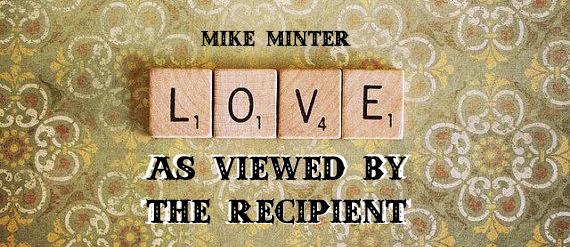A Tribute to Dr. R.C. Sproul
 For those of you unfamiliar with the world of theology, allow me to introduce you to the greatest theological mind in the last century – Dr. R.C. Sproul. In a culture awash with theological liberalism, Dr. Sproul has been one of the greatest defenders of the faith in our lifetime.
For those of you unfamiliar with the world of theology, allow me to introduce you to the greatest theological mind in the last century – Dr. R.C. Sproul. In a culture awash with theological liberalism, Dr. Sproul has been one of the greatest defenders of the faith in our lifetime.
On December 14, he went home to meet the Savior he has faithfully preached about for the last fifty years of his life. “Well done, thou good and faithful servant!” were no doubt the first words he heard upon entering his eternal home and walking into the presence of his Lord.
God gifted Dr. Sproul with a mind that was far beyond that of the greatest of scholars. A scholar himself in numerous fields, he was a superb philosopher, an accomplished linguist, a master logician and a theologian beyond compare. What he casually knew about various disciplines often exceeded the knowledge of scholars dedicated to those fields. To challenge R.C. to a debate was to face sure defeat even before the first words were spoken. His mind was a true gift from God and a true gift to Christianity – a gift well-stewarded in advancing the Kingdom.
When Dr. R.C. Sproul left this world, I am quite certain 90% of its intelligence left with him. But our great loss is overshadowed by his great legacy. May God bless Dr. Spoul’s legacy, and may it continue to bear gospel fruit for generations to come.
For to me, to live is Christ and to die is gain. -Philippians 1:21
Christmas Devotional from Pastor Mike
Words mean something.
In this short devotional, my desire is to look at some of our favorite words that we sing at this time of year and reflect on their meaning. You might be in for a surprise.
Abortion and the Conscience
 The word conscience means “to know with.” God has designed the human conscience in such a way as to know right paths from wrong paths. Unfortunately, the wrong path is often the most tempting. “For wide is the gate and broad is the road that leads to destruction, and many enter through it” (Matthew 7:13b).
The word conscience means “to know with.” God has designed the human conscience in such a way as to know right paths from wrong paths. Unfortunately, the wrong path is often the most tempting. “For wide is the gate and broad is the road that leads to destruction, and many enter through it” (Matthew 7:13b).
So what do we do with this conscience of ours when it presents moral restraints that seem to limit our freedom? The first step is that we suppress the truth because of our unrighteous desires (Romans 1:18). This leads to the hardening of our hearts toward moral truth. Our conscience soon becomes defiled and callous.
The next step in this progression is to minimize the seriousness of the moral restraint by changing the terminology identified with the issue at hand. Simply put, we soften the terms from something offensive to something palpable. Here are a few examples:
- Adultery is marital indiscretion
- Pornography is adult entertainment
- Drunkenness is happy hour
- Fornication is living together
The result is that issues once recognized as morally wrong are now accepted and promoted.
While there are many examples, there is no greater modern moral issue where the redefining of terms has led to such a holocaust as abortion. It is not hard to see the searing of the conscience of an individual — or even a nation — on this issue. The social and personal impact of abortion has been diminished over the years by the introduction of less-offensive language. The abortion industry has leveraged vernacular change with such brilliance that what was once seen as horrific and unthinkable is now promoted as normal, even healthy.
Note the clever use of softer terminology by the abortion industry:
It’s a woman’s choice. Sounds good. Who could possibly be opposed to choice? This is our fundamental right and freedom, is it not? However, no one wants to talk about what this choice is about. Is she choosing her clothes for the day? Choosing tea or coffee? Scrambled eggs or fried? Choice seems innocuous enough — until we realize that the stakes are much higher than presented. The word choice is a clever sleight of hand designed to shift our eyes off the real issue — a child’s life. The real choice at hand is whether or not to end the life that God has created in her womb.
I have a right to do what I want with my body. I could not agree with this statement more. To decide whether she wants to exercise or not is certainly her right. But in this case, somehow the body inside of her is left out of the equation. Does she have the right to destroy another body for her convenience? Where do her rights intersect with the rights of that other body, being knit together within her?
We have already seen abortion advocates cleverly shifting the terms once more, asking such questions as, “Well, when does ‘life’ really begin?” And on and on we go. If we found evidence of even one single-celled organism on Mars, headlines would blatantly tout LIFE FOUND ON MARS! Yet the severed conscience of fallen man would still continue to debate about the the complex miracle of life in a mother’s womb. Somehow our thinking has been scrambled.
Let me be clear to say that we are not to hate those who oppose us on this issue. We are to simply bring the truth to the surface, present it lovingly, and allow God to work. Society may try to redefine the terms for us, but for those who follow Christ, let us keep our eyes sharp — and our consciences clear — on the real issues at hand.
I praise you because I am fearfully and wonderfully made (Psalm 139:14).
Protect or Love? Thoughts on the Refugee Crisis

The issue regarding the refugee crisis has become more than a political and religious hot button. It is now causing division among nations, churches and friends. “My brothers, this should not be!” (James 3:10)
The first thing to consider when engaging in a matter of this complexity is to admit we do not have the necessary biblical knowledge, since Scripture does not expressly address the subject. None of us possess all the necessary information to make a “thus saith the Lord” declaration over this heated issue. In other words, humility must be at the forefront on a matter of such import. There is no singular answer to multi-complex issues. The refugee problem is cultural, religious, social, economic, and national. Any misstep in the handling of it could prove catastrophic for the future of the world. The Bible is clear on many matters, but not on all matters. Immigration of refugees is one of those debatable subjects. Let’s take a look at why this is such a difficult issue to navigate.
Suppose you strongly believe we should allow all refugees into the U.S. The verses you might employ in defense of your position will contain love, compassion and mercy. You will talk about how Jesus loved all people and went after the poor and disenfranchised. You will want to bring in the fact that God is not a respecter of persons. And these are all valid points. However, if you are on the side of those who say don’t let any refugees in, you will select a very different set of verses. Certainly you will want everyone to know that God’s chosen people didn’t just let anyone into their world. In fact, you will point out that God told Israel to wipe out whole nations.
We also need to factor in our spiritual gifting and personal biases. If you are a mercy person, you may say, “Let’s care for all these people!” But if you’re a prophet or more truth-oriented person, you might say, “Let’s protect our own people!” There is also the issue of mixing apples and oranges. Some commands in Scripture are given to an individual (such as “thou shalt not kill”) while others are given to governments (such as “rulers do not bear the sword in vain.”) The government is commissioned to protect us from evildoers (Romans 13:3-4). By contrast, the love chapter of 1 Corinthians 13 is directed toward the individual and says, “Love always protects.”
So who is right – the let’s bring ‘em in or the let’s keep ‘em out? Which is it? Protect our families from terrorists at the expense of letting innocent people suffer? Or let all of the refugees in, knowing terrorists will enter with them and innocent people will be killed?
Who can answer all these questions? Not me. I have some thoughts, but none of which I would die for. What we are facing is the call to show compassion to all and the call to protect our own. These seem to be competing views, yet both are found in Scripture, and we are called to hold to the truth that God never contradicts Himself. Abraham was given the promise of God that he would have a son, but when the son arrived, he was told by God to offer up his son. We now have God’s promise being negated by His command. Now what? Abraham was certain God could not lie, and thus believed the only way out was that God would raise his son from the dead.
Perhaps that’s where we are with these two competing commands in Scripture – protect and love. I believe the answer is found in the church humbling itself before the Lord and seeking His guidance on this matter. He may actually give different directions at different times and in different ways. He has certainly done so with Israel and the church in the past. He may do it again. No matter what side you are on, you will be confronted by the other side with endless statistics and verses that prove the rightness of their position. You will no doubt return the favor. At this moment, I am really praying and reading Scripture while also getting advice from people who know far more than I do on the subject. So no, I don’t have a hard and fast stand. When I do, I will put it out there.
But here is what I do have a strong view on: the way Christians are treating each other over this issue. A recent post on Facebook says that if you don’t believe in bringing all the refugees in, then you don’t believe the gospel. I have no problem with this person expressing their view, but I do have concerns as to how it was expressed. Using Scripture as a weapon for the purpose of intimidating those who disagree only angers the other side and exacerbates an already volatile situation. Suppose I said if you don’t witness everyday you don’t believe the gospel? How might you react?
There are clear guidelines in Scripture as to how we are to communicate. “Let your speech be seasoned with salt” (Colossians 4:6), and “Let no corrupt communication proceed from your mouth but that which ministers grace to the hearer” (Ephesians 4:29). Could it be that such divisive issues become training grounds for believers to learn the value of “Iron sharpening iron” (Proverbs 27:17), or “Speaking the truth in love” (Ephesians 4:15)?
Perhaps if we learn to obey what is clear, God will reveal to us what is not clear. One thing that is certain: Obedience leads to greater illumination of his revelation, and unity is the fruit of corporate humility.
Blessings,
Mike
Love as Viewed by the Recipient
Love is patient, love is kind. It does not envy, it does not boast, it is not proud. It does not dishonor others, it is not self-seeking, it is not easily angered, it keeps no record of wrongs. Love does not delight in evil but rejoices with the truth. It always protects, always trusts, always hopes, always perseveres. (1 Corinthians 13:4-7, NIV)
LOVE IS PATIENT: Thank you for being patient with my shortcomings. It makes me feel accepted by you.
LOVE IS KIND: Your kindness is more than I could ever wish as it makes each day something to look forward to.
LOVE IS NOT ENVIOUS: I have never felt your envy toward me which makes our relationship one of encouragement and not competition.
LOVE IS NOT BOASTFUL: You never speak highly of yourself which becomes an example for me to emulate.
LOVE IS NOT PROUD: Your humility landscapes the lives of those around you, and my life has been shaped by it.
LOVE IS NOT RUDE: There are no sharp edges in your speech or manners. I can express my thoughts without fear of attack.
LOVE IS NOT SELF-SEEKING: The fact that you are not self-seeking makes me feel important and not just tolerated.
LOVE IS NOT ANGRY: You never seem angry which makes me feel protected and safe when I don’t measure up.
LOVE DOES NOT KEEP SCORE: I have the freedom to fail without being reminded of past failures.
LOVE DELIGHTS NOT IN EVIL: Your avoidance of evil is a moral safeguard in our friendship.
LOVE REJOICES IN TRUTH: Your pursuit of truth gives me confidence that you are making wise decisions.
LOVE PROTECTS: I feel secure that you desire to protect my reputation, emotions and the hidden fears of my heart.
LOVE TRUSTS: Your consistent trust in me removes any suspicion and replaces it with trust in you.
LOVE GIVES HOPE: When you give hope to my life, I feel valued.
LOVE PERSEVERES: Your persevering love has been a faithful guide for my earthly pilgrimage.

